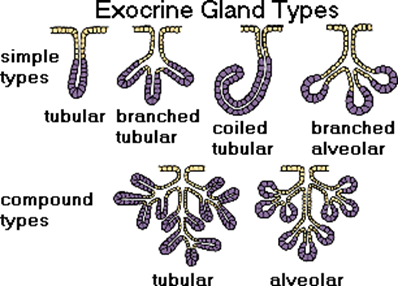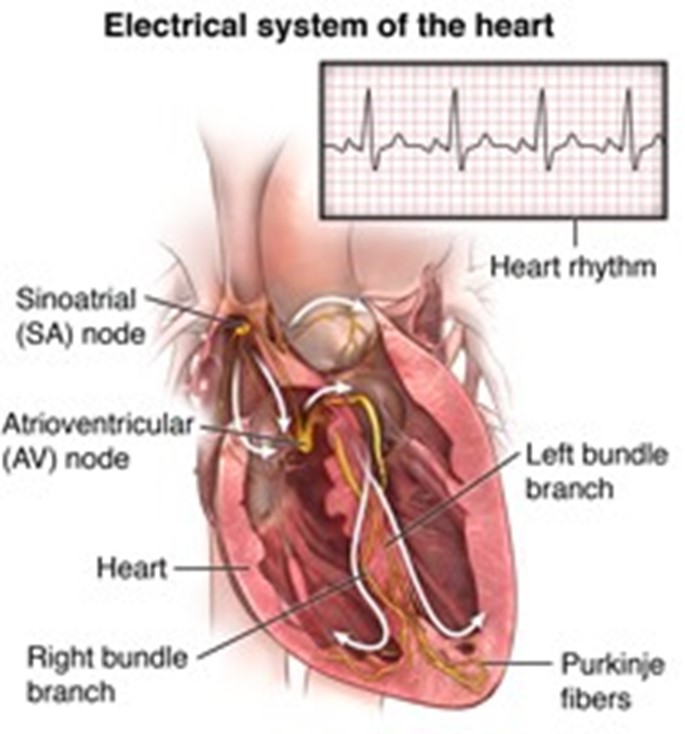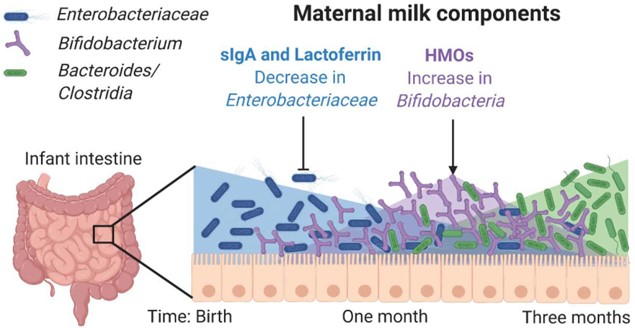Exocrine glands differ from endocrine glands in that exocrine glands:
Only secrete salts.
Secrete only local hormones.
Secrete only into the bloodstream.
Secrete through ducts or tubes to the body’s exterior.
The Correct Answer is D
Exocrine glands secrete through ducts or tubes to the body’s exterior.

For example, sweat glands, salivary glands, and liver are exocrine glands.
Choice A is wrong because exocrine glands do not only secrete salts, but also other substances such as enzymes, mucus, and sebum.
Choice B is wrong because exocrine glands do not secrete hormones at all.
Hormones are secreted by endocrine glands, which are ductless glands that release their products directly into the bloodstream.
Choice C is wrong because exocrine glands do not secrete into the bloodstream, but onto an epithelial surface such as the skin or the gastrointestinal tract.
Only endocrine glands secrete into the bloodstream.
Nursing Test Bank
Naxlex Comprehensive Predictor Exams
Related Questions
Correct Answer is C
Explanation

The sinoatrial (SA) node is the natural pacemaker of the heart.
It generates electrical impulses that cause the heart’s chambers to contract, setting the heart rate.
The SA node typically generates 60–100 heartbeats per minute when a person is at rest.
Choice A is wrong because Purkinje fibers are part of the electrical conduction system of the heart that carries impulses to the ventricles.
They are not the primary source of impulses.
Choice B is wrong because the AV bundle (also called bundle of His) is another part of the electrical conduction system of the heart that connects the atria and the ventricles.
It is not the natural pacemaker of the heart.
Choice D is wrong because an atrioventricular node is a relay station between the atria and the ventricles that delays the electrical impulses from the SA node.
It can act as a backup pacemaker if the SA node fails, but it is not the normal pacemaker of the heart.
Correct Answer is C
Explanation

A newborn is protected against certain digestive and respiratory infections by IgA received via the mother’s milk.
IgA is the main antibody found in breast milk, and it coats and seals the baby’s respiratory and intestinal tract to prevent germs from entering the body and bloodstream.
Choice A is wrong because the blood does not contain IgA, which is the main antibody that protects mucosal membranes.
Choice B is wrong because the placenta does not transfer IgA to the fetus, but only some other antibodies such as IgG.
Choice D is wrong because the intestine does not produce IgA in newborns, as they are born with low levels of IgA.
Whether you are a student looking to ace your exams or a practicing nurse seeking to enhance your expertise , our nursing education contents will empower you with the confidence and competence to make a difference in the lives of patients and become a respected leader in the healthcare field.
Visit Naxlex, invest in your future and unlock endless possibilities with our unparalleled nursing education contents today
Report Wrong Answer on the Current Question
Do you disagree with the answer? If yes, what is your expected answer? Explain.
Kindly be descriptive with the issue you are facing.
